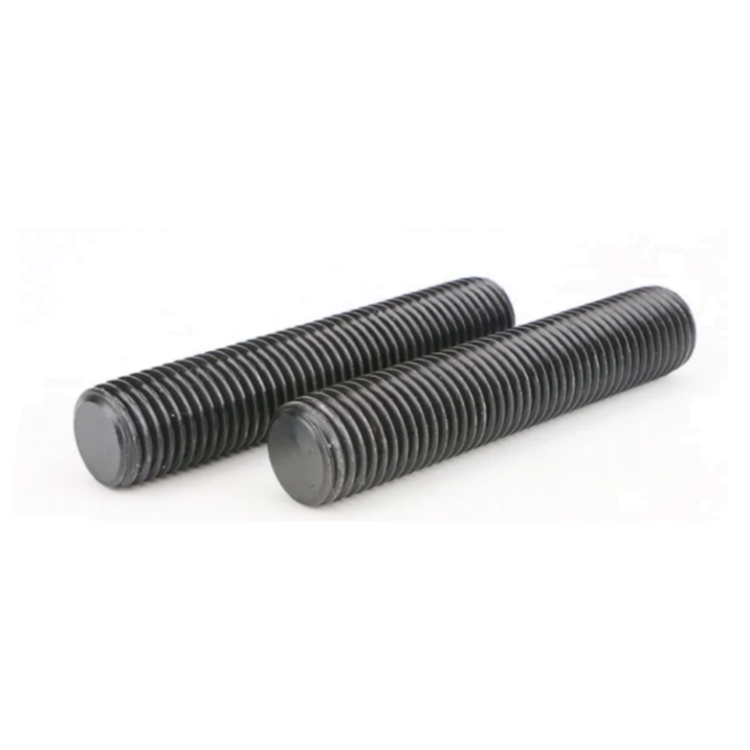EFT Fasteners Exporter for High-Quality Bolts and Industrial Solutions
Nov . 09, 2024 21:58 Back to list
EFT Fasteners Exporter for High-Quality Bolts and Industrial Solutions
Exporting EFT Bolts A Global Business Perspective
In the realm of industrial hardware, EFT bolts represent a crucial component widely utilized across various sectors, including construction, automotive, and manufacturing. As demand for durable and reliable fastening solutions continues to escalate, exporters of EFT bolts are increasingly finding their footing in the global marketplace. This article sheds light on the significance of EFT bolts and examines the dynamics of their exportation.
EFT bolts, known for their exceptional tensile strength and resistance to corrosion, are often manufactured using high-quality materials such as stainless steel, titanium, and specialized alloys. The unique properties of these bolts make them suitable for heavy-duty applications, where safety and durability are paramount. For instance, they are commonly used in infrastructure projects such as bridges and buildings, where structural integrity is crucial. As a result, the demand for EFT bolts is not only stable but is also witnessing growth, driven by rapid urbanization and industrialization worldwide.
Exporting EFT Bolts A Global Business Perspective
When it comes to exporting EFT bolts, it is essential for companies to navigate through various trade regulations and compliance requirements. Each country has its own set of standards governing the quality and safety of industrial hardware. Therefore, exporters must ensure their products meet the regulatory frameworks of their target markets. This may involve obtaining certifications such as ISO, ASTM, or DIN, which not only facilitates market entry but also enhances the credibility of the brand.
eft bolts exporter

Moreover, understanding the cultural and economic landscape of the destination country is vital for successful export operations. Market research plays a crucial role in identifying potential customers, understanding their specific needs, and customizing products accordingly. The ability to tailor EFT bolts for different applications—such as industrial machinery, automotive parts, or heavy construction equipment—can significantly enhance a company's competitive edge.
Logistics is another critical aspect of the exportation process. Efficient supply chain management can determine the success of exporting operations. Timely delivery and reliable transportation routes must be established to minimize costs and meet customer expectations. Collaborating with experienced freight forwarders can streamline this process, ensuring that EFT bolts reach their destination safely and promptly.
Digital marketing and e-commerce platforms have fundamentally transformed the way manufacturers and exporters connect with clients. Building an online presence through professional websites and social media channels can help exporters showcase their products, share expert insights, and generate leads. Utilizing B2B marketplaces allows businesses to expand their reach and tap into new markets without the constraints of traditional sales channels.
In conclusion, the export of EFT bolts presents a promising opportunity for manufacturers in an increasingly interconnected world. With the right strategies in place—ranging from compliance with international standards to embracing digital marketing and efficient logistics—exporters can thrive in this competitive domain. As industries continue to evolve and the demand for high-quality fasteners grows, the potential for EFT bolt exporters is limitless, making it a sector to watch closely in the coming years. As markets expand and new opportunities arise, the future looks bright for those involved in the trade of EFT bolts.
Latest news
-
High-Quality Panel Stud Bolt Reliable Panel Stud Bolt Factory & Suppliers
NewsJul.08,2025
-
High-Precision Fine Thread Locknuts Manufacturer & Supplier Custom Solutions
NewsJul.08,2025
-
PH Imperial Stud Bolt – High Strength Fasteners from Leading Supplier & Factory
NewsJul.07,2025
-
High-Quality Allen Wrench Bolts Leading Factory, Company & Suppliers
NewsJul.07,2025
-
Wholesale Ball Stud Bolt - High Quality Supplier & Factory Price Reliable Wholesale Ball Stud Bolt Company
NewsJul.06,2025
-
High-Strength Alloy Bolts Manufacturer & Supplier Quality Alloy Fasteners Factory
NewsJul.06,2025
